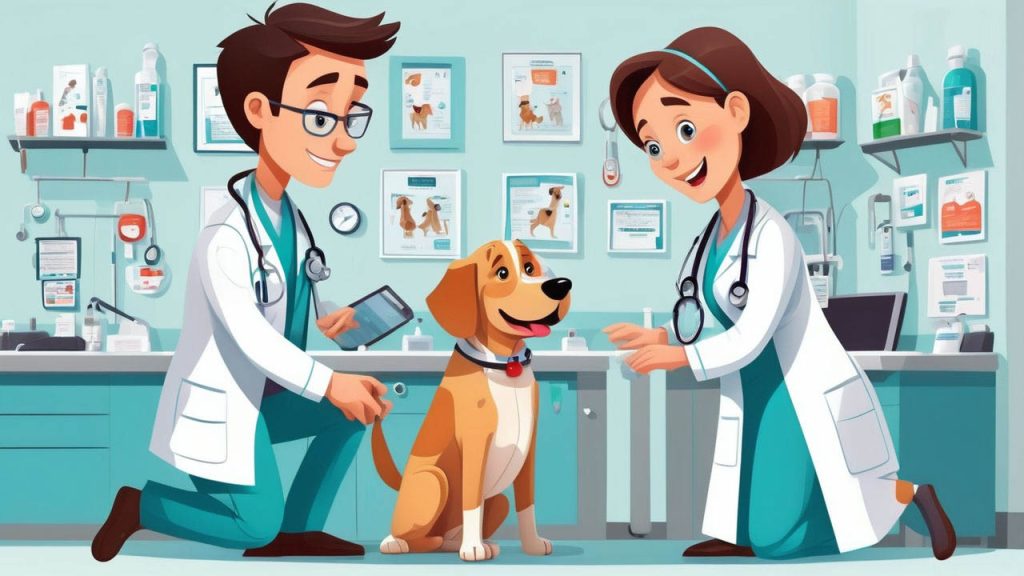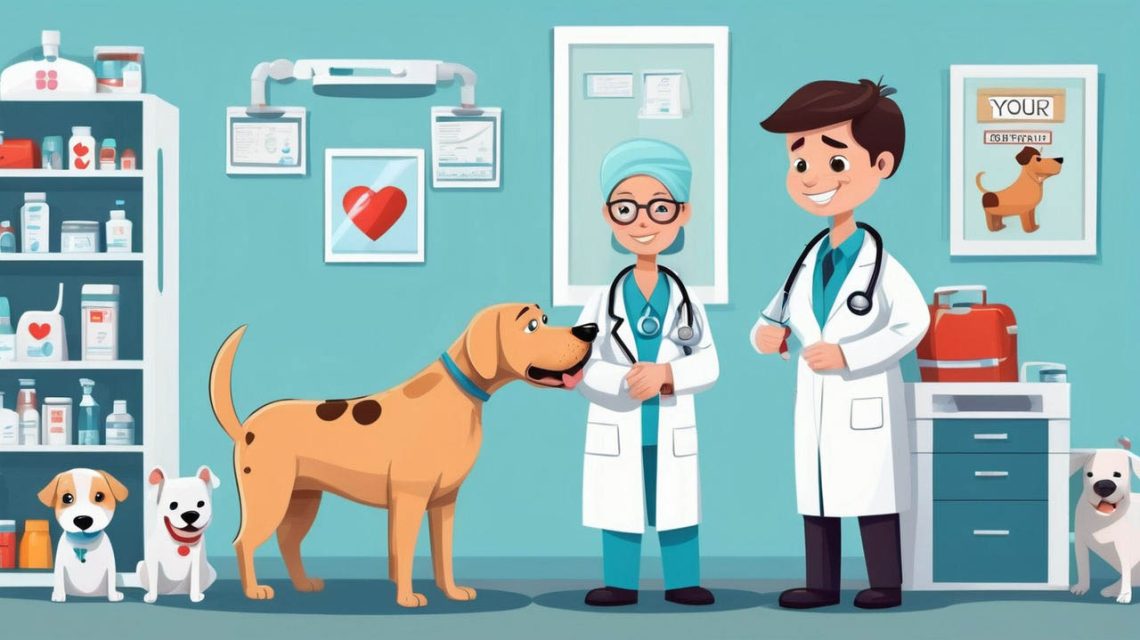Doggie Hospital: Essential Care for Your Pet’s Emergencies
Your dog is part of the family, and when they experience a health crisis, you want to ensure they receive the best care possible. A doggie hospital, also known as an animal or veterinary hospital, is equipped to handle emergency situations and provide specialized medical treatment for pets. Whether your dog has suffered an injury, eaten something dangerous, or is experiencing unexplained symptoms, a doggie hospital is the place to go for immediate and professional care.
In this article, we’ll explore the services provided by doggie hospitals, when you should take your dog to one, and how to be prepared for a pet emergency. Understanding what to expect can help reduce stress during a critical time and ensure your dog gets the care they need.
When to Take Your Dog to a Doggie Hospital
Knowing when to seek emergency care for your dog can be challenging. While some situations require immediate attention, others can wait for a regular vet appointment. Here are some signs that indicate a trip to the doggie hospital is necessary.
1. Sudden and Severe Symptoms
If your dog is displaying sudden, severe symptoms, such as uncontrollable vomiting, seizures, or difficulty breathing, it’s important to seek emergency care immediately. These signs often indicate a serious underlying issue, such as poisoning, organ failure, or severe allergic reactions.
- Tip: Any instance of your dog being hit by a car, falling from a height, or suffering trauma should also be treated as an emergency, even if they appear fine afterward.
2. Unexplained Lethargy or Weakness
If your dog is suddenly weak, lethargic, or unable to stand, these could be signs of something more serious, such as internal bleeding, heart issues, or infection. This kind of extreme fatigue should not be ignored and warrants a visit to a doggie hospital.
3. Ingestion of Harmful Substances
Dogs are naturally curious, and sometimes they eat things they shouldn’t. If your dog ingests toxic substances like chocolate, medications, plants, or household cleaners, it’s crucial to get them to a doggie hospital immediately. Even a small amount of some substances can be lethal for dogs.

Services Provided by a Doggie Hospital
Doggie hospitals are equipped to provide a wide range of services to treat various medical conditions, from life-threatening emergencies to specialized care. Here are some of the key services you can expect when visiting a doggie hospital.
1. Emergency Care
At a doggie hospital, the emergency care team is trained to quickly assess and treat critical health issues. From injuries to severe illnesses, the veterinary staff will stabilize your dog and provide life-saving treatments such as intravenous fluids, oxygen therapy, or surgery.
- Tip: Call ahead if possible to let the hospital know you’re on your way. This allows the team to prepare for your dog’s arrival, speeding up the treatment process.
2. Diagnostic Testing
To properly diagnose what’s wrong with your dog, a doggie hospital will often perform diagnostic tests, such as blood work, X-rays, ultrasounds, and CT scans. These tests help veterinarians quickly identify the issue, whether it’s an internal injury, infection, or chronic disease.
3. Surgery
If your dog needs immediate surgery—whether for a broken bone, an intestinal blockage, or an emergency C-section—the surgical team at the doggie hospital is ready to provide expert care. Many hospitals have specialized surgical equipment and skilled veterinarians who can perform complex operations.
4. Intensive Care Unit (ICU)
For dogs that are critically ill or need constant monitoring, a doggie hospital often has an Intensive Care Unit (ICU). In the ICU, veterinary staff closely monitor your dog’s vital signs and provide around-the-clock care to ensure a stable recovery.
How to Prepare for a Pet Emergency
No one wants to think about their dog needing emergency care, but being prepared can make a stressful situation more manageable. Here are some steps you can take to ensure you’re ready if an emergency arises.
1. Know the Location of the Nearest Doggie Hospital
In a pet emergency, every minute counts. Locate the nearest 24-hour doggie hospital before you need it, and save their phone number and address in your phone. This way, you won’t waste precious time searching for emergency care when every second matters.
2. Create a Pet First Aid Kit
Having a pet first aid kit on hand can help you manage minor injuries or stabilize your dog until you can get to the hospital. Your kit should include items like bandages, antiseptic wipes, gauze, tweezers, and a digital thermometer. You should also have any medications your dog takes regularly.
- Tip: Consider taking a pet first aid class to learn how to handle emergencies like choking, bleeding, or broken bones.
3. Keep an Emergency Fund for Vet Bills
Emergency vet visits can be expensive, especially if surgery or overnight care is required. Keeping an emergency fund or investing in pet insurance can help you cover unexpected costs without added financial stress during an already emotional time.
The Role of Routine Vet Visits in Preventing Emergencies
While doggie hospitals are there for emergencies, routine vet visits can help prevent many emergencies from occurring in the first place. Regular check-ups allow your vet to catch potential health issues before they become serious problems. By staying up to date on vaccinations, parasite prevention, and health screenings, you’re giving your dog the best chance at a long, healthy life.
1. Vaccinations and Preventive Care
Keeping your dog up to date on vaccinations, such as rabies, distemper, and parvovirus, can protect them from dangerous diseases that might otherwise land them in the hospital. Routine check-ups also help with parasite prevention and dental care, both of which are vital for maintaining your dog’s health.
- Tip: Ask your vet about preventive treatments, such as heartworm medication, flea and tick prevention, and regular blood work to catch early signs of illness.
2. Early Detection of Health Issues
During routine vet visits, your veterinarian will check for common health problems like ear infections, allergies, and joint pain. Catching these issues early can prevent them from escalating into emergencies that require hospital care.
What to Expect After a Doggie Hospital Visit
After your dog has been treated at a doggie hospital, follow-up care is essential to ensure a smooth recovery. Here’s what you can expect once your dog returns home from the hospital.
1. Post-Treatment Instructions
Your vet will provide detailed post-treatment care instructions, which may include administering medications, restricting your dog’s activity, or scheduling follow-up appointments. It’s important to follow these instructions closely to ensure your dog heals properly.
2. Monitoring Recovery
Keep a close eye on your dog after their hospital visit. Look for any signs of discomfort, infection, or changes in behavior that may indicate complications. If anything seems off, contact your vet for advice.
3. Emotional Support
After a trip to the doggie hospital, your dog may feel stressed or anxious. Provide them with plenty of emotional support by creating a calm, quiet environment and giving them lots of love and attention. This will help them feel safe as they recover.
FAQs About Doggie Hospitals
How much does an emergency visit to a doggie hospital cost?
- Emergency vet visits can range from $200 to $1,500 or more, depending on the severity of the condition and the treatments needed. Surgery or overnight care can increase the cost.
How do I know if my dog’s condition is an emergency?
- If your dog is having difficulty breathing, bleeding, seizing, or showing signs of extreme pain, it’s time to head to the hospital. Always err on the side of caution and seek emergency care if you’re unsure.
Are doggie hospitals open 24 hours?
- Many doggie hospitals operate 24 hours a day to handle emergencies at any time. Check with your local hospital to confirm their hours and availability.
Can I visit my dog if they need to stay overnight at the hospital?
- Most doggie hospitals allow pet owners to visit their dogs if they are staying overnight or in the ICU, but policies vary. Be sure to ask about visitation rules when you drop off your dog.
How can I reduce my dog’s anxiety about visiting the hospital?
- Bring familiar items like your dog’s favorite toy or blanket, and offer treats and praise to make the experience more positive. If your dog has severe anxiety, speak to your vet about calming aids or training techniques.


